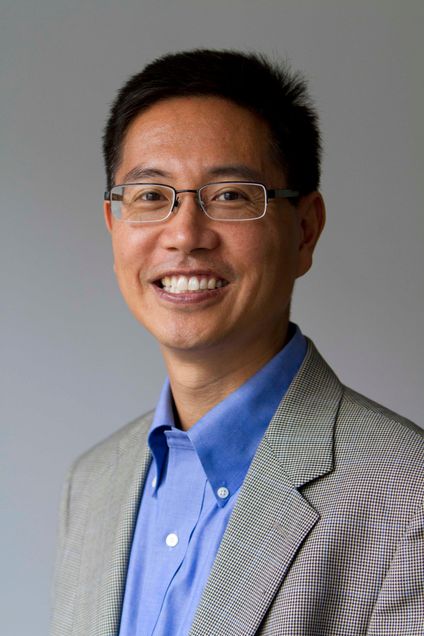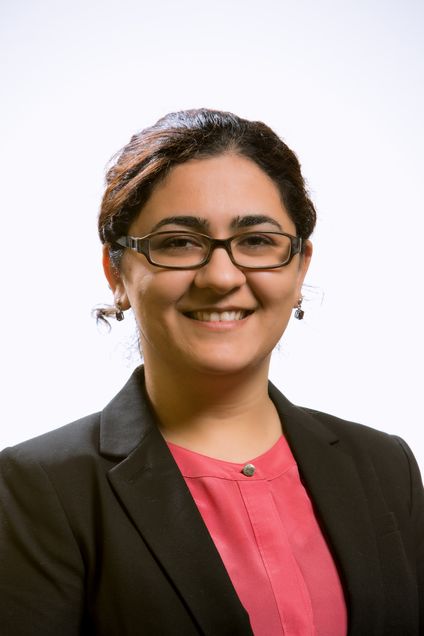Christopher Chen to Deliver DeLisi Lecture
By Liz Sheeley
In recognition of their contributions to engineering and society, Professor Christopher Chen (BME, MSE) is the recipient of this year’s Charles DeLisi Award and Lecture, and Assistant Professor Sahar Sharifzadeh (ECE, MSE, Physics) will receive the Early Career Excellence Award.
The Charles DeLisi Award and Lecture recognizes faculty members with extraordinary records of well-cited scholarship, senior leaders in industry and extraordinary entrepreneurs who have invented and mentored transformative technologies that impact our quality of life, and provides the recipient with a public forum to discuss his or her work before the Boston University academic community and the general public.

Chen will present the Charles DeLisi Distinguished Lecture, “How Complex is Simple Enough? Engineering 3D Culture Models of Physiology and Disease” on Monday, April 1 at 4 p.m. in the Photonics Colloquium Room, 9th Floor.
Chen became a member of the faculty in 2013, and is the founding director of the Biological Design Center, director of the Tissue Microfabrication Laboratory, and professor of biomedical engineering at Boston University and the Wyss Institute for Biologically Inspired Engineering at Harvard University. He has been an instrumental figure in the development of engineered cellular microenvironments to understand how cells build tissues.
His group pioneered the use of micro- and nano-fabrication technologies to identify the underlying mechanisms by which cells interact with materials and each other to build organized tissues, and to apply this knowledge in the biology of stem cells and tissue vascularization. Most recently, he has used these insights to engineer biomimetic cultures that recapitulate the architecture and function of a variety of human tissues, as a new platform for studying human physiology and disease.
He has served or is serving as a member of the American Institute for Medical and Biological Engineering, Faculty of 1000, the Board of Trustees for the Society for BioMEMS and Biomedical Nanotechnology, and Defense Sciences Study Group. He was awarded the Robert A. Pritzker Distinguished Lecture Award, the Presidential Early Career Award for Scientists and Engineers, the Angiogenesis Foundation Fellowship, the Office of Naval Research Young Investigator Award, the Mary Hulman George Award for Biomedical Research, and the Herbert W. Dickerman Award for Outstanding Contribution to Science.
Chen received his bachelor’s degree in biochemistry from Harvard University, master’s degree in mechanical engineering from MIT, and doctoral degree in medical engineering and medical physics from the Harvard-MIT Health Sciences and Technology Program. He earned his MD from the Harvard Medical School.
He began his academic career as an assistant professor in biomedical engineering and in oncology at Johns Hopkins University, and then was recruited to the University of Pennsylvania as the Skirkanich Professor of Innovation and founding director of the Center for Engineering Cells and Regeneration prior to his current appointment at Boston University.
The Early Career Research Excellence Award celebrates the significant, recent, high-impact research achievements of exemplary tenure-track faculty who are within 10 years of receiving their PhD.

Sharifzadeh’s research focuses on understanding the fundamental properties of materials down to the atomic scale. Her group uses computational methods to develop a physical intuition of the electronic and optical properties of non-traditional semiconductors. In recognition of her innovative research, Sharifzadeh was named one of 11 rising stars by Nature Index in 2018. She also received the Department of Energy’s Early Career Award in 2017.
The Award’s namesake, Charles DeLisi, who is widely considered the father of the Human Genome Project, was an early pioneer in computational molecular biology, and also made seminal contributions to theoretical and mathematical immunology. He is the Metcalf Professor of Science and Engineering, and continues to direct the Biomolecular Systems Laboratory, where more than 100 undergraduate, graduate and post-doctoral students have trained.
As dean of the College of Engineering from 1990 to 2000, DeLisi recruited leading researchers in biomedical, manufacturing, aerospace and mechanical engineering, photonics and other engineering fields, establishing a research infrastructure that ultimately propelled the College into the top ranks of engineering graduate programs. In 1999 he founded—and then chaired for more than a decade—BU’s Bioinformatics Program, the first such program in the nation.